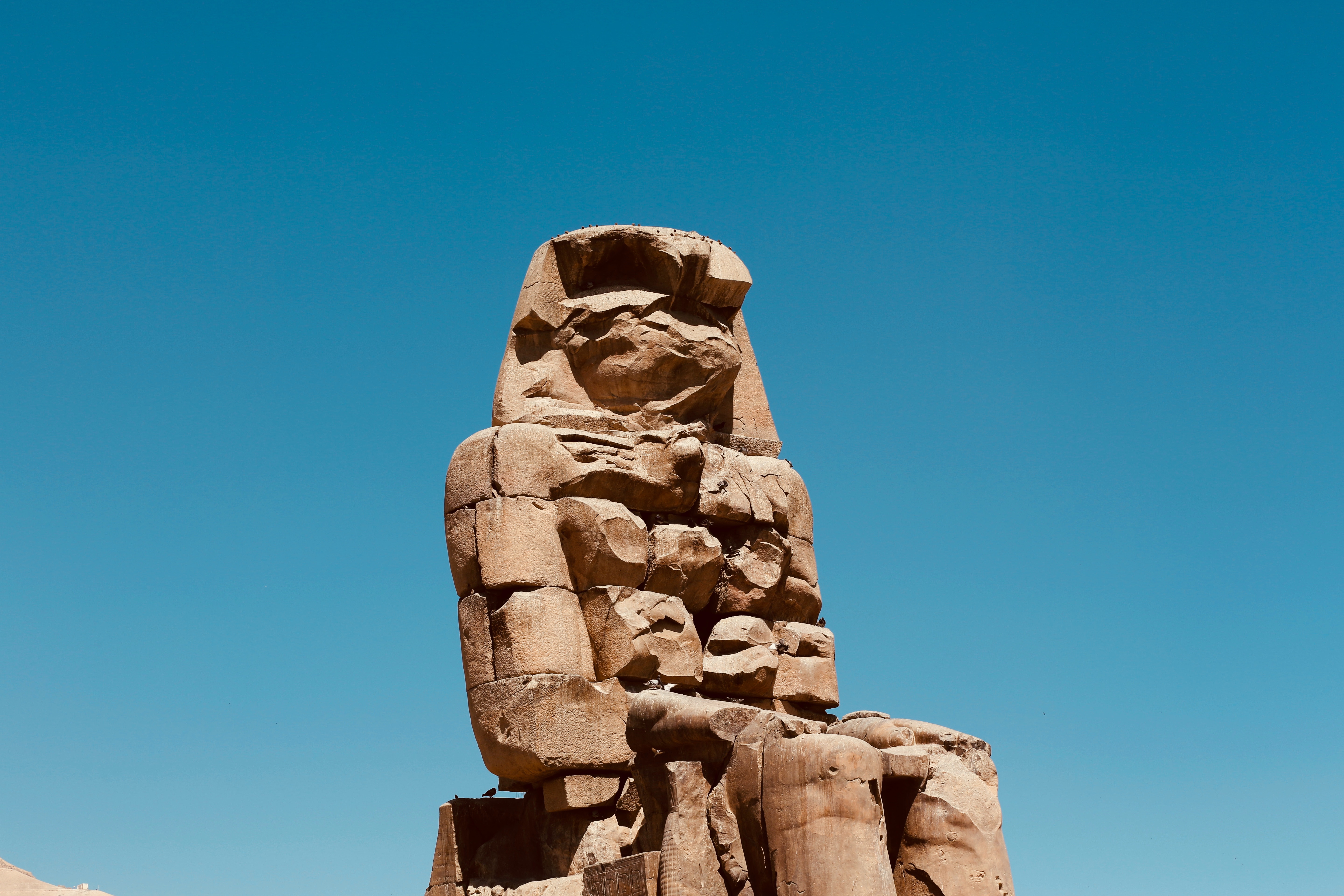Pharaoh Down
It’s the superficiality that gets me.
Endless articles about how Bob or Janice hired the right person because they took the risk that just because Alice didn’t have an MBA didn’t mean that she couldn’t bill more than Dave and they were proved right when Alice landed that big deal. Bob and Janice would like you to know that they are much cleverer than you and have “insight”.
Anyway, I just turned 55. Let me tell you about my 18th birthday.
I was taking what’s now called a “gap year” with a charity. They sent me to a town in the Nile Delta as a teaching assistant in a school run by priests. Six weeks before I’d been catching fish in the North Sea and now here I was in the heat, dust and poverty of an Egyptian provincial town.
The school had been built by a French order in the late 19th Century, and, apart from electricity and a concrete extension, hadn’t changed much. My bedroom had once belonged to a long-dead French priest and had never been cleared after his departure. His pince-nez glasses were still in the bedside cabinet and his vestments, including a mitre, were still taking up half the wardrobe. Oh, and the whole place was infested with cockroaches.
For reasons that, to this day, are unclear to me, my job was to sit in the head teacher’s office and drink something that said “Fanta” on the bottle label but wasn’t.
Around three weeks into the “job” the priest who ran the school invited me to spend a few days at his sister’s place in Cairo. It was his niece’s third birthday.
I dimly recall that we took a shared taxi to cover the 150kms or so to the big city in one of those Peugeot 505 estates that provided transport in Africa from Cairo to Dakar. It was a terrifying journey – I eventually came to understand that all trips in Egyptian taxis were terrifying.
By the Monday evening, we had made it in one physical piece to Father Stephanos’ sister’s flat in the Heliopolis suburbs. Stephanos was the youngest son of a family well enough off to have an apartment with three bedrooms of which I got one.
On Tuesday morning, mine and Stephanos’ niece’s birthdays, we pottered about Heliopolis visiting his family, some fellow priests and drinking gallons of tea before heading back to his sister’s for a meal including the Egyptian bread that is the world’s finest food.
The TV was on. They had a colour TV. Back home in Scotland, even in 1981, we didn’t have a colour TV.
The flat was just up the road from a stadium cum parade ground and there was a big parade on to commemorate the eighth anniversary of Egypt crossing the Suez Canal in Operation Badr. From the balcony, out front, we were close enough to hear the stadium announcer and the odd parp of military music. It was the first time that I’d noticed that effect where you hear the sounds on TV before the sound reaches you through the air, like the gap between lightning and thunder.
Back in Britain, when I wasn’t on a boat or asleep, current affairs came from the BBC 9 O’clock News and maybe a Sunday Newspaper. I knew about Begin and Sadat, their peace deal and Nobel Prize and I was dimly aware that Sadat had just chucked out the Soviets or something. And that was it.
I didn’t know what a fatwa was or who Omar Abdel-Rahman was or for that matter who Egyptian Islamic Jihad was.
Nobody had ever heard of Khalid Islambouli.
On the TV in the flat, some paratroopers were making unpleasantly hard landings on the concrete in front of the President. As they struggled to control their chutes they were being dragged on their knees by a gusty wind.
Straight over my balcony seat, a flight of Mirage jets roared past in ragged formation. As they went out of my sight over the edge of the stadium, the TV cameras followed them as they dipped their wings in salute over the parade.
Below the fighters, open-topped trucks were passing in review order with helmeted troopers sitting bolt upright in dark uniforms.
Then there were men running towards the podium with weapons levelled. The cameras moved suddenly to follow the action, pointed to the sky and then the TV went to white noise.
From the balcony, I heard a concussion like a door being slammed and the echoing crackle of automatic gunfire.
We did what anyone else would do. We switched on the radio and finished lunch. Minutes later a sand coloured Sikorsky thundered over the building rattling the plates on the kitchen counter. That presumably was Sadat being airlifted to the hospital where surgeons worked for two hours to save him.
Dressed in his Army uniform, the President had been hit at point-blank range in the chest. Later that evening my hosts translated the radio announcement that he hadn’t made it.
So we went to bed.
In the morning I celebrated being 18 by taking the metro train into Cairo and going to the Egyptian Museum. The train and streets were deserted but the Museum was open. It was the first and, so far, only, time that I’ve seen the treasures of Tutankhamun – I had his gold death mask to myself that day.
In Asyut the Army and Police were fighting for their lives. Those paratroopers I had watched dragged across the concrete went down to restore order.
And then we went back to El Mahalla El Kubra in the Delta. What else could we do?
Would anyone like to talk about how to write a CV to land that critical new role?



